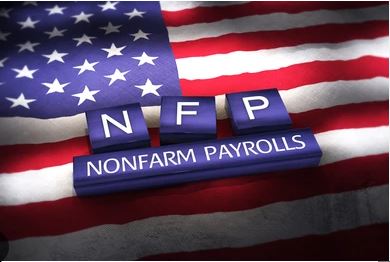Gambling is defined by “Encyclopedia Britannica” as “Gambling, the betting or staking of something of value, with consciousness of risk and hope of gain, on the outcome of a game, a contest, or an uncertain event whose result may be determined by chance or accident or have an unexpected result by reason of the bettor’s miscalculation.

Most people consider gambling as a form of entertainment that they can indulge in over the weekend or on holidays, there are however some who get addicted to gambling. Over time they may acquire enough experience to become professional gamblers, their experience allows them to gamble better but it doesn’t change the nature or reality of gambling.
The difference between an amateur and an experienced gambler is similar to the difference between an amateur and an experienced and professional investor. Time and experience are perhaps the best teachers one can learn from and for this reason in this article we shall try to learn a few lessons from gambling that can help us manage our finances a little better, a little wiser.
Budgeting
If you have ever gambled or placed a bet on anything, you will know that budgeting is crucial to gambling. You may even have done it unconsciously without thinking that you were budgeting your capital before placing the bet. We unconsciously limit our exposure while placing the bet with SPBOBet, for example if you are talking excitedly about a sporting event with your friends and you place a bet, you`ll most probably say that I bet you $10 that Juventus is going to win the Serie A.
You cannot leave a bet open ended, it has to be specified and when you specify the amount of debt you are basically budgeting. What do you do before going for a night out in the casino? You set aside the money that you are willing to bet on your night out, you don’t just take your cheque book to the casino do you? Unless you are a villain in a Bond movie, chances are you will not take your cheque book to the casino, instead you will set a limit to how much you are going to gamble.
Why do we budget before gambling? Because we know that gambling is a game of chance, risk and probability and frankly anything can happen. You can either win big or go bust. When the stakes are this high then your first natural reaction is to limit your exposure so that you do not end up losing everything that you own.
Well this is the type of mindset that can also help us in our daily lives. Budgeting is considered as a cliché but it is one of the core parts of personal financial management, more than half of our financial difficulties can be managed easily if we simply get into the habit of making weekly, monthly and annual budgets.
Risk Management
Risk management is a strategy that professional investors employ in order to reduce or mitigate the risk that their portfolios are exposed to. Gambling has got similar lessons to teach to gamblers and in this aspect investment and gambling appear to be similar to each other.
A gambler needs to have a very well defined risk management strategy if the aim is not to lose everything. As stated above, gambling involves a high degree of chance and luck and this means that there is a high amount of risk involved. This risk can be reduced to an acceptably low level by reducing reliance on luck and increasing the reliance on skills and strategy. For instance in a casino, a slot machine has perhaps the highest luck factor than other activities or games in the casino. Slot machines generate random results and therefore your chances of winning are based purely on luck and thus the risk of loss is the highest whereas table or card games such as black jack also involve a degree of skill and knowledge and therefore the risk level is less compared to a slot machine.
A highly skilled blackjack player can gamble a considerably higher amount as compared to an amateur player. This is called risk management. Gamblers try to minimize their risk by using their skills and past experience to place more informed bets and wagers.
Another way experienced gamblers manage risk is by cashing out when they are winning. It is rare to find a gambler who keeps on putting his money or winnings on stake just because he is on a roll, most experienced gamblers know that the right time to cash out is when you are winning because there is always the chance you will lose as most gambles are zero sum games.
What we can learn from this is that risk management is crucial when it comes to personal financial management. Whether you are a professional investor or simply looking to invest your savings you should always have a risk management plan in place in order to reduce, prevent or mitigate the amount of risk that your portfolio is exposed to.
Risk – Reward
The risk – reward relationship is something that gambling teaches very easily to everyone. This is one of those things that many gamblers learn early on. The amount of reward that you can expect is directly proportional to the amount of risk that you are willing to take.
If you are being prudent by trying to keep your risk to a minimum level then your reward through gambling is also going to be low. If you bet $10 on the outcome of a match you will either win or lose $10 and if you wager $1000 on the outcome then you will either win or lose $1000, it cannot be said in a simpler manner.
A successful gambler has to walk the tightrope between balancing the risk and reward because gambling can turn into an addiction, as you always know that you can win that jackpot and the drive to win it can cause people to put everything they own on the line, this is not intelligent gambling. Professional gamblers never put everything on stake because they understand the rules of the game. In the long run it is the house that has an advantage, not the gambler and like a trader the best chance that a gambler has got, is in the short run.
Risk – reward relationship is therefore one of the key lessons one can learn from gambling. This is one of those things that we can carry on into our lives. Every interaction that we make, every step that we take in our lives involves some degree of risk and reward. There is also the concept of opportunity cost, when you have to decide between different options and the opportunity cost simply becomes the benefit you could have reaped from the forgone option.
For instance on a night out in the casino, a gambler may go in with a fixed budget of $500, now the gambler can only spend $500 on a few options. He can either spend this on slot machines, to win the jackpot or put this all in a game to win big. The decision of the gambler will depend on the analysis of the risk and reward.
Some people frown upon the mention of the word gambling some see it as science, some equate it with investment while some see it as art. What is it? Perhaps it is a mixture of all of these things but whatever it is, we can learn some very important lessons in personal financial management through a careful study of gambling.


 Hot Features
Hot Features











